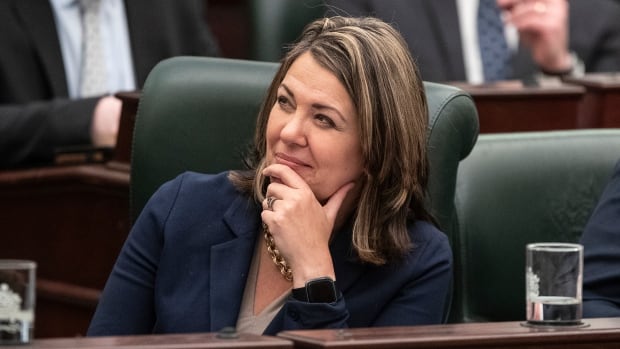As Alberta continues its never-ending journey on the oil and gas rollercoaster, the province’s fortunes are among the best ever, with cash from the oilpatch still filling up the coffers.
After several years of fiscal restraint, Tuesday’s provincial budget shows the governing United Conservative Party (UCP) is in the mood to open the vault and ramp up spending for health care, education, highways and dozens of other projects. Operating costs will climb by $2.6 billion and capital costs are in the tens of billions.
The sharp jump in expenses, of course, comes while the province is heading toward a spring election and current opinion polls have the governing UCP and Premier Danielle Smith in a near tie with the opposition NDP and Leader Rachel Notley.
With so much money pouring into the government’s hands, there are relatively few limits to what parties could promise during the election in a bid to lure as many voters as they can. If any party wants to make extravagant pledges of big ticket projects, there is no shortage of money to fund it.
After a surplus of more than $10 billion last year, the government projects another $2.4 billion this year, with further surpluses anticipated in the coming few years.
The decisions on how to spend and save could be a critical focus simply because of how much money is on the table.
“This is what the election campaign is going to centre on,” said Ken Boessenkool, a public policy expert who has worked or volunteered for former prime minister Stephen Harper, as well as Preston Manning, Stockwell Day, and Christy Clark.
“Do you want a province with higher spending or do you want a province with more savings? I think the big question is: Will Smith be able to resist the urge to spend more money in the face of a New Democratic Party who’s politically competitive [and] will almost certainly be promising to spend a lot more.”
Hey big spender
So far, it’s Smith who’s dishing out the dollars.
The UCP’s budget includes a rise in expenses by $2.6 billion to $68.3 billion, including the hiring of 7,600 new government workers with the majority in health care and education. Overall, the health budget will reach a record high of $24.5 billion, an increase of 4.1 per cent.
Other highlights include billions in affordability measures, such as lowering utility bills and a massive $23-billion infrastructure campaign over the next three years to improve and build highways, hospitals and other projects.
“There’s an awful lot of money tumbling out of Edmonton into various programs,” said Boessenkool, a partner with Meredith Boessenkool Policy Advisors.
“There’s one thing that drives spending in Alberta, and it’s not the ideology of the premier. What drives spending in Alberta is revenue, and when revenue goes up, spending goes up.”
Indeed, the oilpatch continues to provide a massive windfall for the province. Revenues are down slightly from last year as commodity prices have softened, but remain well above average. Meanwhile, corporate taxes are expected to hit a record high on the strength of the oilpatch and the overall provincial economy.
The UCP is stashing away some of the cash by lowering the province’s debt by about $15 billion from 2021-22 to 2023-24, which would leave the amount owing at about $75 billion.
Still, the sharp rise in spending is a major surprise for many experts, especially considering the UCP was elected four years ago with a promise of fiscal prudence and restraint.
Pollster Janet Brown described it as “massive.”
“Essentially what the UCP is saying is, ‘The good times are here, we’ve got a lot of money, we’re going to do a lot of spending, a lot of investing,'” she said.
“I was listening to the budget and I was imagining what kind of a budget we would have got if the NDP were in power and they had access to this kind of surplus and it’s hard to imagine that the NDP would be spending any more.”
And more could be coming before the May election, said Brown. She suggested announcements might include money for a new NHL arena in Calgary.
The right mix
Part of the decision about whether to spend or save must reflect what many Albertans are facing as inflation hits them in the pocketbook, said Lori Williams, a political science professor at Calgary’s Mount Royal University.
That dissonance, she said, complicates matters. “One of the sort of truisms in politics is that people will use the spending power of the government to make promises to provide services, perks, policies and so forth, going into an election, and that sways voters,” she said.
With the budget’s release, each party now has the latest figures to come up with the strategy it thinks will strike the perfect balance that most voters want between spending and saving.
If Tuesday’s budget was any sign of what’s to come, expect a flurry of other hefty campaign promises as the May election draws closer and the oil cash keeps gushing.


